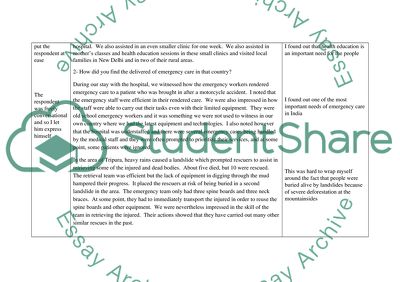Cite this document
(“Qualitative methods in social health research Paper”, n.d.)
Retrieved from https://studentshare.org/health-sciences-medicine/1396326-qualitative-methods-in-social-health-research
Retrieved from https://studentshare.org/health-sciences-medicine/1396326-qualitative-methods-in-social-health-research
(Qualitative Methods in Social Health Research Paper)
https://studentshare.org/health-sciences-medicine/1396326-qualitative-methods-in-social-health-research.
https://studentshare.org/health-sciences-medicine/1396326-qualitative-methods-in-social-health-research.
“Qualitative Methods in Social Health Research Paper”, n.d. https://studentshare.org/health-sciences-medicine/1396326-qualitative-methods-in-social-health-research.


